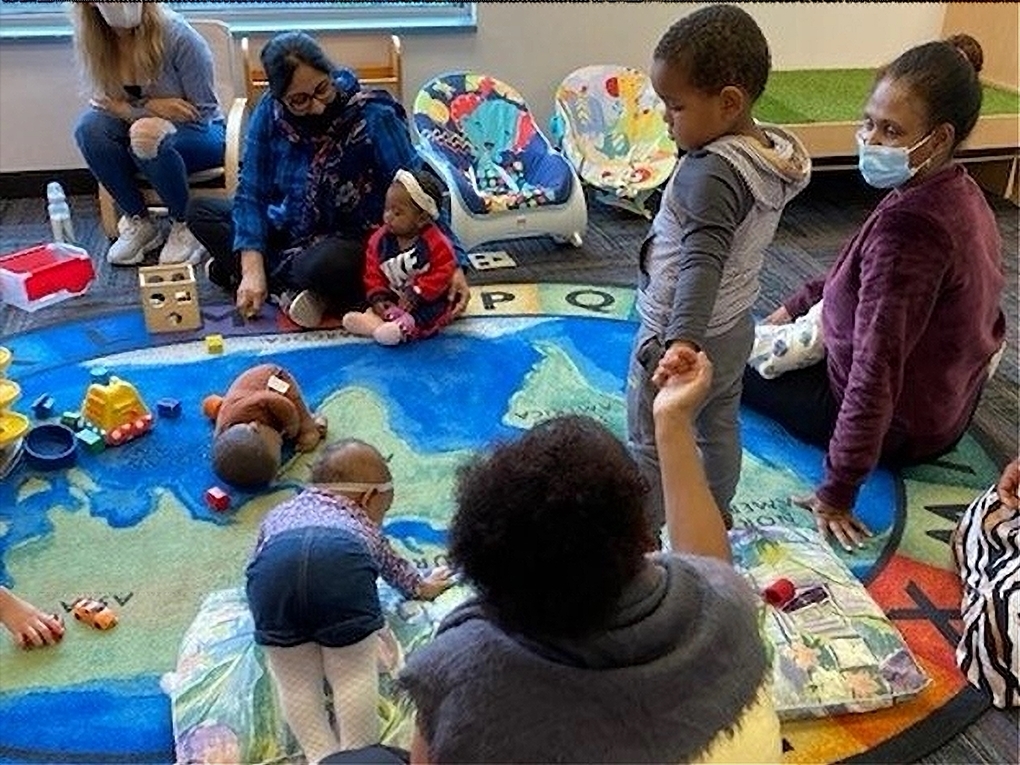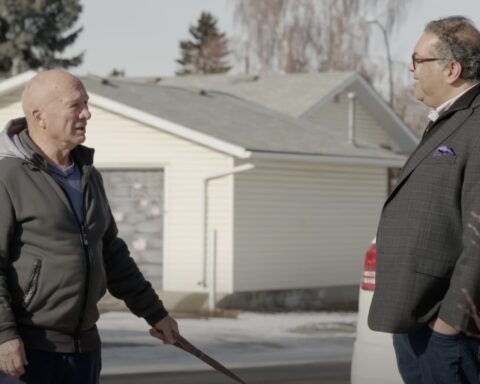The Canadian healthcare system may be unfamiliar to Black newcomers, but they receive a clear message of assimilation when accessing services, according to two leading Black academics and mental health practitioners in Alberta.
“It’s almost like ‘turn yourself inside out. Wash off anything that you brought with you’ – whether that is belief systems, values, practices – and then turn [yourself] back again and then put in new things,” says Regine Uwibereyeho King, associate professor at the faculty of social work at the University of Calgary.
Originally from Rwanda, King says the mental health model applied in Canada is one of deficit, focused on determining what is “wrong” with Black migrants instead of looking at their resilience and the ways they are adapting to their new environment.
Outdated Eurocentric framework
The way the system is structured also has a significant impact on people’s experiences, adds Sophie Yohani, professor at the department of educational psychology at the University of Alberta and originally from Tanzania.
Things like referring yourself to a counselor, making an appointment, the limited time given to clients, and the models used to address mental health challenges, are all based on a Eurocentric framework, she says. In this context, the ways of knowing of people of African descent are not acknowledged.
In 2019-2020, Yohani and King conducted research into actions that could be taken to promote health equity in the mental health of Black Canadians. They used “concept mapping” methodology to engage service providers, community leaders and volunteers who worked with Black Canadians in Edmonton and Calgary in generating and organizing ideas.
They discovered that while participants identified having culturally relevant mental health services as one of the most important considerations, these services were the least seen in implementation, said King, and were only found at the community level.
“It’s very ironic that many of our Black community members have to rely on their own ethnic community members or Black community associations that are created almost as a side to mainstream services that are supported by… our taxes,” she says.
“Then you observe the discrepancy – that notion of you can never be Canadian enough to deserve services that respond to your needs.”
Amos Kambere is the president of Umoja Compassion Society of British Columbia, which states their mission as assisting immigrants and refugees “to successfully integrate into an inclusive Canadian society” and thus “move from newcomers to neighbours.”
Originally from Uganda, Kambere lived as a refugee in the Congo for four years before coming to Canada as a Government Assisted Refugee in 1992. Now, he assists other refugees from war torn areas in Africa, among others, through Umoja.
Relying on goodwill

Kambere says a lack of funding for community organizations like Umoja lowers their capacity to adequately assist refugees who are dealing with mental health issues, which leaves many “falling through the cracks.”
“If we had a counselor from the community stationed at our office, he or she would be seeing a lot of these refugees,” says Kambere, “and use the cultural method, use the traditional method that refugees come with, and support these refugees” before referring them to external agencies.
Instead, he says Umoja relies on the goodwill of qualified African professionals who make time to assist them on a volunteer basis, which means mental health support is inconsistent and unsustainable.
The idea for Umoja was born from Kambere’s own traumatic experience six months after arriving in Canada. Minutes after his three-year-old son answered a phone call from the dentist, social services arrived at his door. The immediate assumption had been that the child was alone, he said, and they were surprised to find Kambere there too.
Ten years later, Kambere received a letter from the Ministry of Children and Family Development to notify him his file had been closed. He says realizing he’d been surveilled all those years was “more traumatic than the actual time they showed up at my door.”
Kambere thought about the many refugees arriving from camps who were not educated and the similar challenges they may encounter and decided to start an initiative to help them navigate various systems in Canada.
“Sometimes [people here] think [refugees] are just coming here for a good life. And yet … [they’ve] been saved from a situation that their governments have created,” he says.
“It may be a better life, yes, but it’s not their choice.”
In Kambere’s view, this misperception of refugees creates a barrier to healing, perpetuating their trauma, all of which creates a burden on the Canadian health care system.
Racial trauma
Marie Jolie Rwigema, post-doctoral associate in the faculty of social work at the University of Calgary, says the lens of racial trauma is missing from mental health services.
“People’s reasonable responses for racism are being understood as psychological pathologies, on the one hand,” she says. “On the other hand, people’s traumas are not being recognized because racism is so normalized. So, [it’s] both like an overdiagnosis and an underdiagnosis.”
She gives the example of a black male youth who may be referred to a community service provider for anger management counseling, but the approach fails to include exploring the reasons for his anger.

“Trauma is not just about your coping mechanisms but it’s about you being in an ongoing context of violence that is directed at you because (of being) Black,” says Rwigema. “So, it’s collective. It’s individual. It is cumulative.”
Yohani says recent research shows that post-migration trauma has more impact on refugees than pre-migration trauma as “it’s actually not safe in the new environment,” particularly for people encountering systemic anti-Black racism.
In her view, this highlights the fact that addressing mental health must go beyond treating clinical symptoms and consider all the social determinants of health, including housing, employment, and access to justice.
Solutions
One of the recommendations of participants in the concept mapping study was for mental health service providers to work with communities to help them identify issues of concern and share their own knowledge, which could then be incorporated into services.
Mainstream service providers need to hire more practitioners from countries refugees are coming from, says Kambere, which would require dismantling systemic barriers for migrants with non-Canadian qualifications.
According to King and Yohani, more research and training is needed, requiring reliable funding that will allow them to build on the work done so far.
King says courses like an Afrocentric perspective on social work, which she is currently teaching with a colleague for the first time, also need to be incorporated into the university curriculum.
In Yohani’s view, space also needs to be created for knowledge that has been silenced and marginalized.
This is increasingly relevant considering Canada’s changing demographics, she says.
“A Eurocentric worldview is no longer actually reflective of the Canadian population and (of) who social workers, psychologists, psychiatrists…will be serving.”
Daniela Cohen is a freelance journalist and writer of South African origin currently based in Vancouver, B.C. Her work has been published in the Canadian Immigrant, The/La Source Newspaper, the African blog, ZEKE magazine, eJewish Philanthropy, and Living Hyphen. Daniela's particular areas of interest are migration, justice, equity, diversity and inclusion. She is also the co-founder of Identity Pages, a youth writing mentorship program.






[…] Source: Canadian mental health system inadequate for Black refugees […]